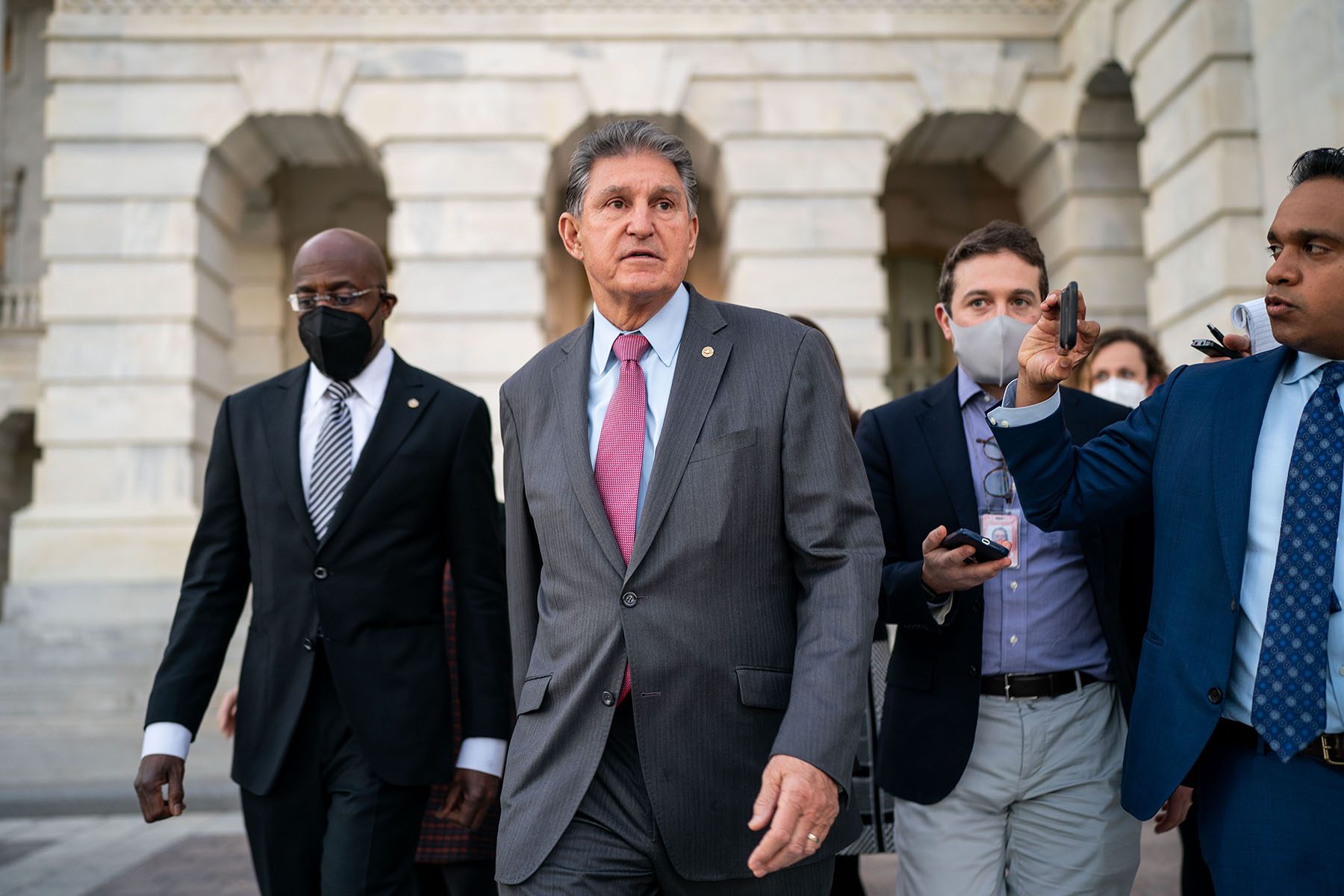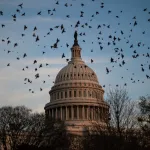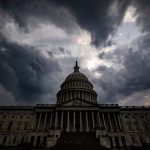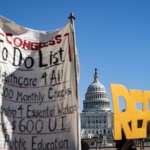Paid leave came as close to a reality in the United States as it ever has — then, on the precipice of passage as part of the Build Back Better Act, it all fell apart.
It wasn’t just paid leave, but the full Build Back Better package that seemed to be dead. Sen. Joe Manchin — a West Virginia Democrat who was seen as an essential vote for the passage to pass in an evenly split Senate — told “Fox News Sunday” that he would not vote for the $1.75 trillion legislation.
“I have always said, ‘If I can’t go back home and explain it, I can’t vote for it.’ Despite my best efforts, I cannot explain the sweeping Build Back Better Act in West Virginia and I cannot vote to move forward on this mammoth piece of legislation,” Manchin later said in a statement.
Build Back Better not only included historic investments in child care and pre-kindergarten, but the version that passed the House also had four-week universal paid leave. Though it was unclear whether it would remain in any version that would get a vote in the Senate, paid leave was seen as a key component of that package that would have been a win for Democrats and President Joe Biden, delivering on one of his campaign promises. But months of negotiating, cajoling and advocating turned up no additional support from Manchin. The senator has said that he believes the policy, which Republicans have supported in theory but have vastly different ideas for funding, could still pass in the future, and that he wanted to pass paid leave as separate, bipartisan legislation.
Already, the $200 billion policy included in Build Back Better was significantly pared down from what was originally proposed — 12 weeks of paid sick and parental leave — but it preserved an inclusive definition of family that would have allowed LGBTQ+ couples to take leave if their partners were sick or to welcome a child. It also would have covered up to 90 percent of earnings for the lowest-income workers and included self-employed workers.
However limited, advocates saw the proposal as a starting point that would change the country’s position on the worldwide stage when it comes to paid leave. The United States is one of only seven nations — the others are Papua New Guinea, Palau, Tonga, Micronesia, the Marshall Islands and Nauru — that does not offer the benefit. Even when the proposed amount was 12 weeks, what Congress was considering was far less than what most other countries have offered their workers for decades. Worldwide, the average paid maternity leave is 29 weeks and the average paid paternity leave is 16 weeks, according to data from the World Policy Analysis Center.
Paid leave’s inclusion in Build Back Better was tenuous. The House scrapped it entirely due to pushback from Manchin before adding it back into the plan as a four-week benefit days before the package went to a vote. Several Democrats in the Senate, including Sens. Kirsten Gillibrand, Patty Murray, Ron Wyden and Senate Majority Leader Chuck Schumer, had mounted a campaign to enlist Manchin’s support for paid leave.
Gillibrand worked with Meghan, the Duchess of Sussex, to directly call Republicans in the Senate and make the case for paid leave. To Manchin, she tried to argue that there was not a bipartisan option. Previously, Republican paid leave proposals have been tailored specifically around parental leave. They’ve proposed funding it through tax credits to businesses or by allowing parents to pay for the benefit from cuts to their child tax credits over a decade.
Murray, who has been one of paid leave’s longest advocates since the early 1990s, said paid leave has never been a priority.
“We have all been told so many times on this issue, time and again: ‘We’ll get that done next time. Next bill. Next year,’” Murray said during a press conference last week.
Some suspected the pandemic would change that. Many families were faced with the need to take sick time off work to recover from the virus but avoided doing it in order to not jeopardize their jobs. That was most acute for the lowest-paid workers in the country — most of them women and people of color — 95 percent of whom don’t have any paid leave. Studies found that states that had more robust paid leave policies were able to control the spread of coronavirus better when controlling for other factors.
Paid leave was also viewed as an essential part of the care infrastructure the bill was aiming to create after nearly two years where child care options have dwindled, sending parents — especially mothers — out of the labor force and hampering the economic recovery.
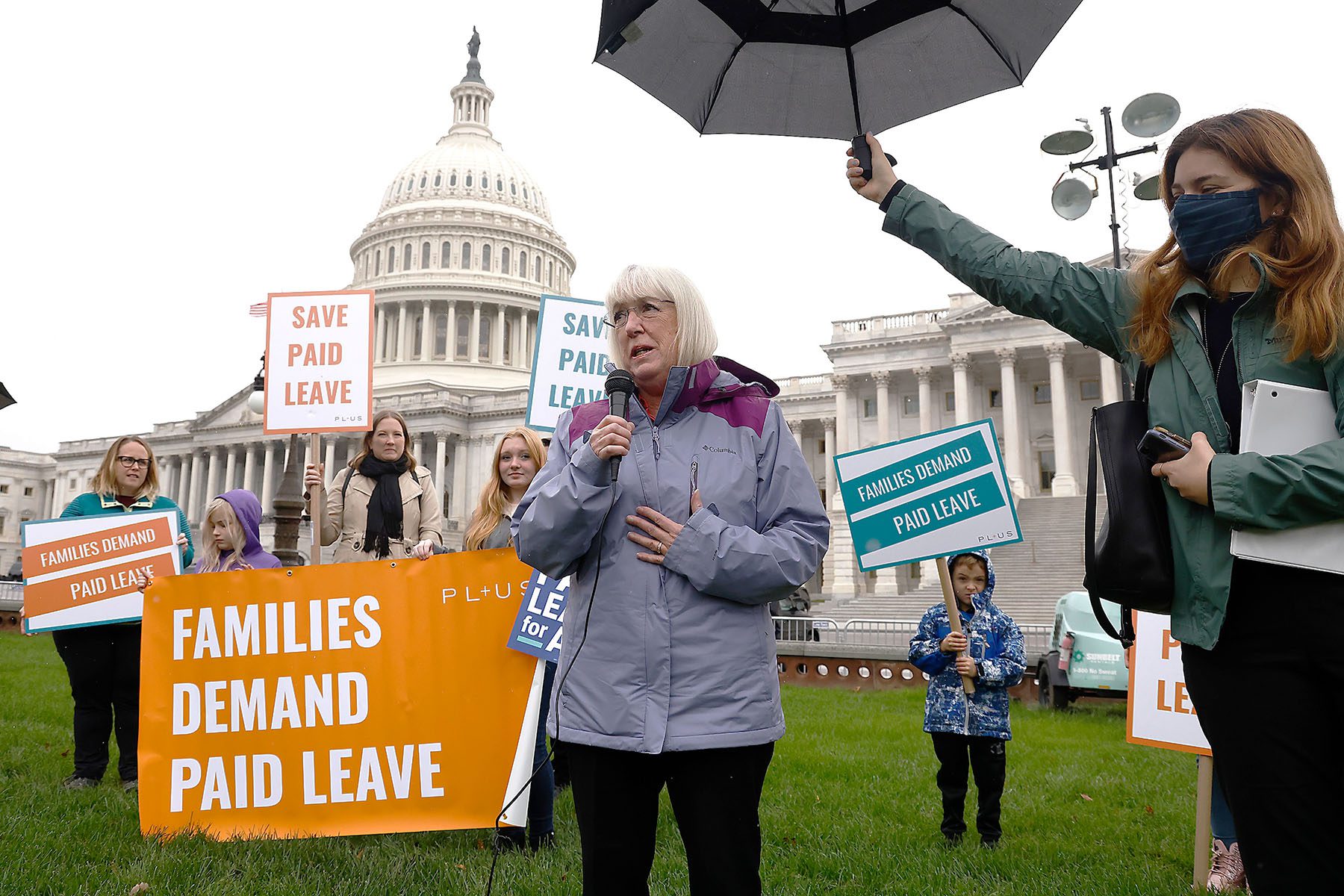
“There are three legs to the care economy,” Gillibrand previously told The 19th, “and you can’t really address the need of this moment if you don’t have affordable day care, universal pre-K and national paid leave because if you look at the care that a family in crisis needs, one of those three things is going to help.”
It’s unclear what happens next. Before Manchin‘s latest statement about Build Back Better, Gillibrand said she was willing to work with Republicans on a separate plan, but that could take months and a pathway to passage is unclear.
Outside the halls of Congress, paid leave has strong support. About 63 percent of voters support paid leave — 80 percent of Democrats and 48 percent of Republicans — according to a December Morning Consult/Politico poll.
The policy also has business support, because government subsidies could help lift some of the pressure to provide their own paid leave.
Marcia St. Hilaire-Finn, the owner of Brightstar Early Care Preschool in Washington, D.C., has been offering one week paid sick time to employees, something she credits with helping her retain low turnover at her center.
“But this is not enough,” St. Hilaire-Finn said. “I’ve had employees who need more time off to welcome a new baby and two for cancer treatment.”
She argued that providing the benefit at a time of a labor shortage and economic recovery when retaining employees is difficult is an economic imperative.
“The cost of doing nothing,” she said, “is hurting small businesses just when we need support to recover and thrive.”
